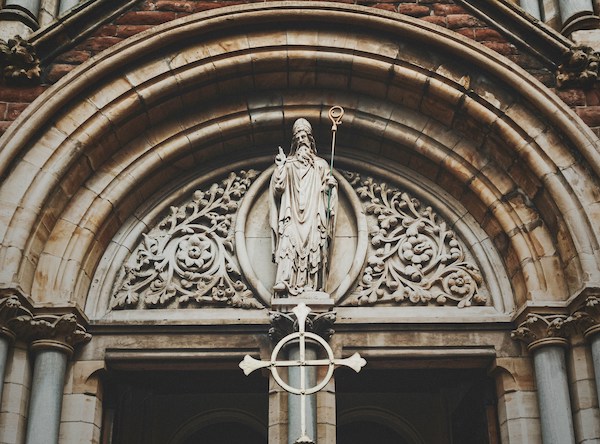Few people want to be described as “narrow-minded.” Narrow-minded people, neglecting key information, can miss the bigger picture and make rash judgments. “Narrow-mindedness”, however, shouldn’t be confused for “single-mindedness.” A “single-minded” person is admired for his focus and determination; it’s a trait that never fails to captivate. A young child determinedly constructing his block tower exemplifies the single-mindedness that makes time fly. When we are completely engaged in an activity, all else fades to the background as we turn our focus away from ourselves and to another. This single-mindedness is refreshing; it is also what Christ calls all Christians to:
“Amen, I say to you, unless you turn and become like children, you will not enter the kingdom of heaven. Whoever humbles himself like this child is the greatest in the kingdom of heaven” (Matt 18:3–4).
Children know their limitations. Their humility forces them to go outside of themselves to have their needs met. It is because children are humble that they are free to be single-minded in their love for God. This is why Christ uses the example of children when he calls us to be humble. Once we are aware of our limitations and become dependent upon him, we can then love him with an undivided heart (Matt 6:24).
One saint who exemplifies this humility and its resultant single-mindedness is Saint Patrick. While everyone has heard of Patrick, few know much about him beyond an association with Ireland, the color green, and the beverage Guinness (for those interested, informative posts on him can be found here, here, and here). A reflection on his autobiographical work, The Confessions, can help bring this single-minded saint into sober focus.
Saint Patrick’s Confessions begin with a statement of humility: “My name is Patrick. I am a sinner, a simple country person, and the least of all believers. I am looked down upon by many” (Confessions 1). He reiterates this later on, remarking that “I am first of all a simple country person, a refugee, and unlearned. I do not know how to provide for the future.”
Saint Patrick’s humility was not self-degrading—on the contrary, his insufficiency provided the backdrop to make the greatness of God’s love stand out all the more. Patrick’s greatness was made possible only through his humility. Because Saint Patrick was humble and unable to provide for himself, he filled his heart with one person: Christ.
Saint Patrick’s single love was Christ. His remarkably Christocentric spirituality is evident in his most famous prayer, the Breastplate of Saint Patrick. Patrick repeatedly invokes Christ to sanctify every aspect of his being. His emphasis on the material world (“Christ on my right; Christ on my left”) is a beautiful testament to the sacredness of our bodies and the material world. Patrick reoriented the misplaced worship of creation found among the pagan people of Ireland into the proper worship of the Creator through his creation. The keystone holding all of this together? The God-man, Jesus Christ, the Incarnate Son of the Father.
The Incarnation testifies to the unfathomable love of God for men, a love that Patrick knew personally. “I give thanks to the one who strengthened me in all things . . . Christ my Lord . . . I sensed in myself no little strength from him, and my faith passed the test before God and people” (Confessions 30).
Saint Patrick knew that he was not the source of his greatness or his mission (see John 15:16). With single-mindedness and simplicity of heart he says that
“Before I was brought low, I was like a stone lying deep in the mud. Then he who is powerful came and in his mercy pulled me out, and lifted me up and placed me on the very top of the wall. That is why I must shout aloud in return to the Lord for such great good deeds of his, here and now and forever, which the human mind cannot measure” (Confessions 12).
Patrick’s deep humility allowed him to cultivate a single-minded love for Christ. In all that he did, he acted for Christ, with Christ, and in Christ. And because of Christ, he preached Christ to those who did not know him.
This year, March 17th is the 5th Sunday of Lent (and not Saint Patrick’s Day). Let us nevertheless imitate St. Patrick’s single-minded love for Christ, which was made possible through his humility. By being humble like children, we can hope to one day be great in the kingdom of God, with Patrick and all the saints.
✠
Image: Photograph by K. Mitch Hodge (used with permission)







